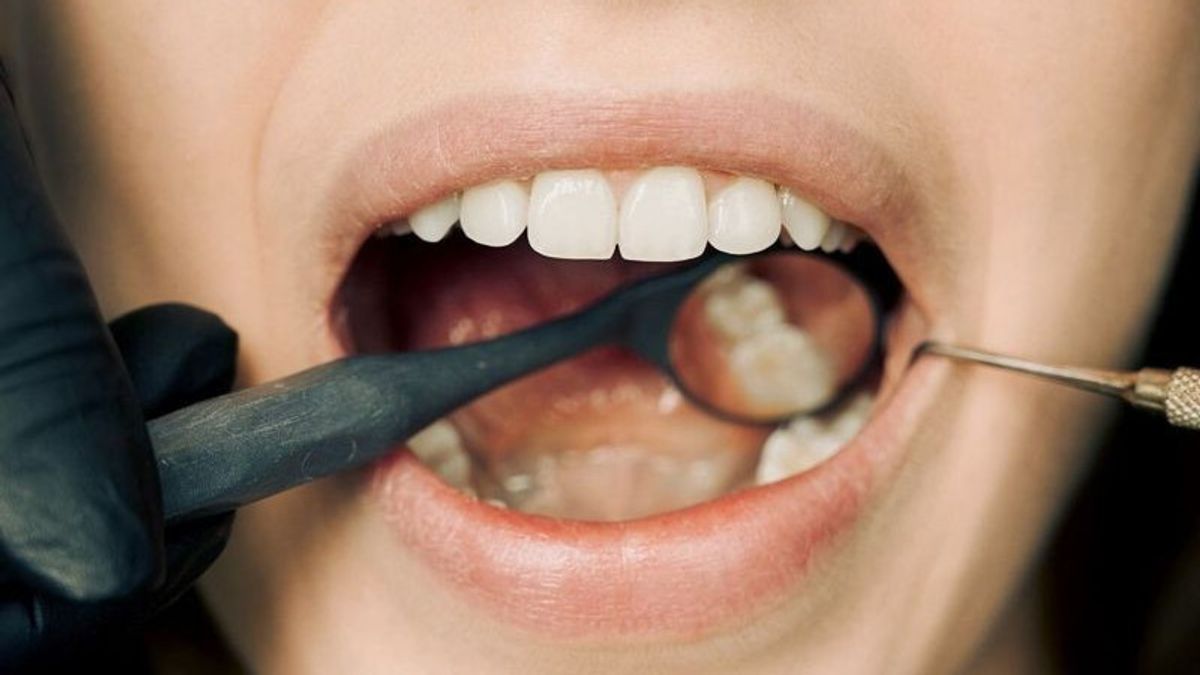JAKARTA - One of the problems that must be faced when fasting is the smell of the mouth. In addition to brushing the teeth, maintaining nutrition is also one of the powerful ways to maintain the health of the mouth and teeth.
The dentist of the Thousand Islands Regional General Hospital (RSUD) Drg Melanie Veronica, MPH distributed tips on maintaining the health of the teeth and mouth during fasting, starting from brushes twice a day to maintaining nutritional intake to maintain body hydration.
"During the month of Ramadan, we will still brush our teeth twice a day, morning after dawn and night before bed," Melanie said as quoted by ANTARA, Tuesday, April 2.
In accordance with the doctor's advice, draw in the teeth for at least 2 minutes, with a duration of 20 seconds per share of the teeth (back teeth, upper teeth, between teeth, and others) in a twisted motion. Don't forget to clean the tongue with a tongue sanitizer or brush your teeth so that the tongue area is also clean.
"You can also use kental floss (tooth bends) to clean between teeth from food left that is not covered by a toothbrush," he said.
In addition to brushing his teeth, Melanie also suggested gargling with mouthwash that does not contain alcohol and ensure that no liquid is swallowed. If you don't have mouthwash, mouthwashing during wusdu can also be done so that your mouth is not too dry even though you are fasting.
When fasting, the condition of the oral cavity will tend to dry due to a lack of activity to chew food. Therefore, Melanie said to maintain body hydration by consuming adequate water, fruit, and vegetables.
"Intake of fluids that enter the body at least two liters per day, can be obtained when breaking the fast to drink as much as two glasses of water, four glasses of night, and two glasses of sahur," said the doctor who graduated from the University of Indonesia.
"When breaking the fast, also eat vegetables and fruits that contain high fiber, such as apples, and limit eating foods with high sugar levels, such as soft foods and sweet foods," he said.
According to him, foods with high sugar levels can make the pH level in the oral cavity low, which makes the number of bacteria in the mouth increase.
Therefore, it is better to avoid eating sweet foods or soft drinks so that pH in the oral cavity is maintained (around 6.5-7.5).
Baca juga:
- https://voi.id/lifestyle/370441/rekening-pribadi-hingga-harta-suami-disita-kronologi-awal-sandra-dewi-dimiskinkan
- https://voi.id/lifestyle/369265/profil-sandra-dewi-artis-sekaligus-istri-harvey-moeis-tersangka-korupsi-tata-niaga-timah
- https://voi.id/lifestyle/370290/sinopsis-drama-china-fry-me-to-the-moon-kisah-3-wanita-melawan-tantangan-hidup
- https://voi.id/lifestyle/370274/shareefa-danish-hadapi-teror-dalam-trailer-menjelang-ajal
- https://voi.id/lifestyle/370411/8-cara-jitu-mendapatkan-orgasme-lebih-baik
If a oral cavity or tooth has problems while fasting, the patient is advised to continue to do a doctor's examination.
In accordance with the Fatwa of the Indonesian Ulema Council (MUI) Number 250/E/MUI-KB/V/2018 concerning Dental Medical Actions, such as dental removal, dental cleaning, dental repair, and other actions while fasting do not break the fast as long as it is carried out carefully and not excessive.
"In accordance with the MUI Fatwa, if the act of dentistry can be carried out during the month of Ramadan. It will not break the fast," said Melanie.
"In addition, exercise control with dentists at least once every six months to ensure good mouth condition," he concluded.
The English, Chinese, Japanese, Arabic, and French versions are automatically generated by the AI. So there may still be inaccuracies in translating, please always see Indonesian as our main language. (system supported by DigitalSiber.id)













